Melanie Woodward
Melanie Woodward’s practice centres personal experiences relating to her Motswana identity as well as wider issues around Botswana’s food production and trade with South Africa.
Her works about her identity are often concerned with having to renounce her nationality, as is required of all Batswana dual-citizenship holders at the age of twenty-one. In response to this, she adopts official government documentation processes, such as the taking of fingerprints, in rebellious acts of self-representation. Through fingerprint self-portraiture Woodward reclaims autonomy over her identity and how it is documented.
In her works about food production and trade, she contrasts ideas of Botswana’s food importation, with those of local production by pulping cardboard, transforming it from a vessel of food transportation to a mud-like site for crop growth. Considering the threats that cross-country trade pose on Botswana’s local food industries, her collages and paintings often juxtapose optimistic symbols of national self-reliance with Google Earth images of importation processes. Interested in Botswana’s reliance on South African imports and the consequent saturation of South African foods in the country, Woodward highlights the overlooking of the origin of such food items as they become deeply integrated into Botswana’s food industry. In her Degree Show work ‘Why Does This Taste Home-grown?’ pulped cardboard also serves as an ironic disguise for these imported goods. Not only are most of the food items referenced in this work manufactured and therefore not ‘grown’ at all, but they are manufactured in South Africa, despite ‘tasting home-grown’ due to their dominance in Botswana’s food industry.
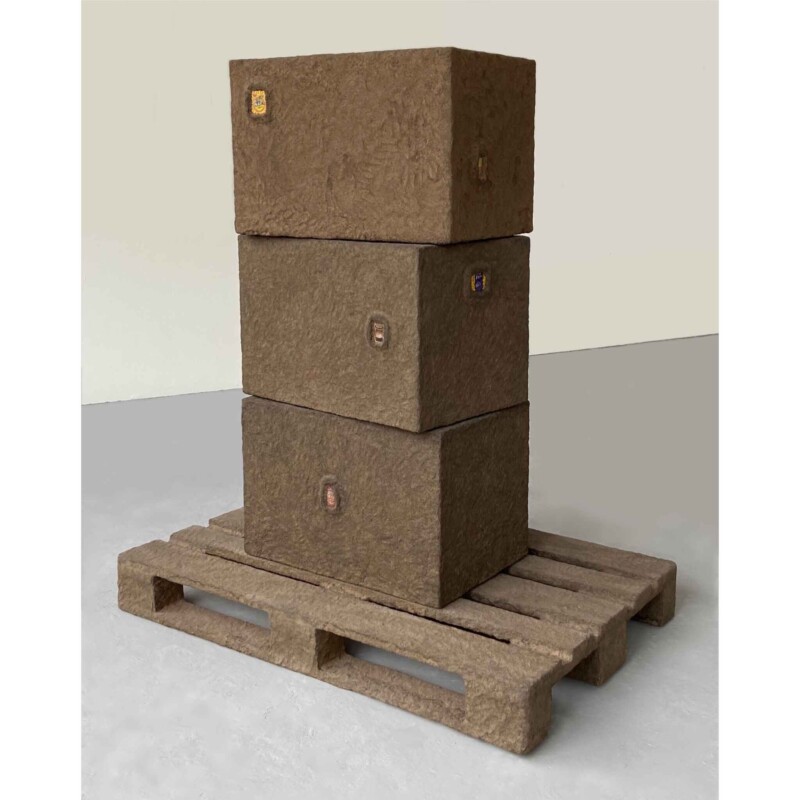
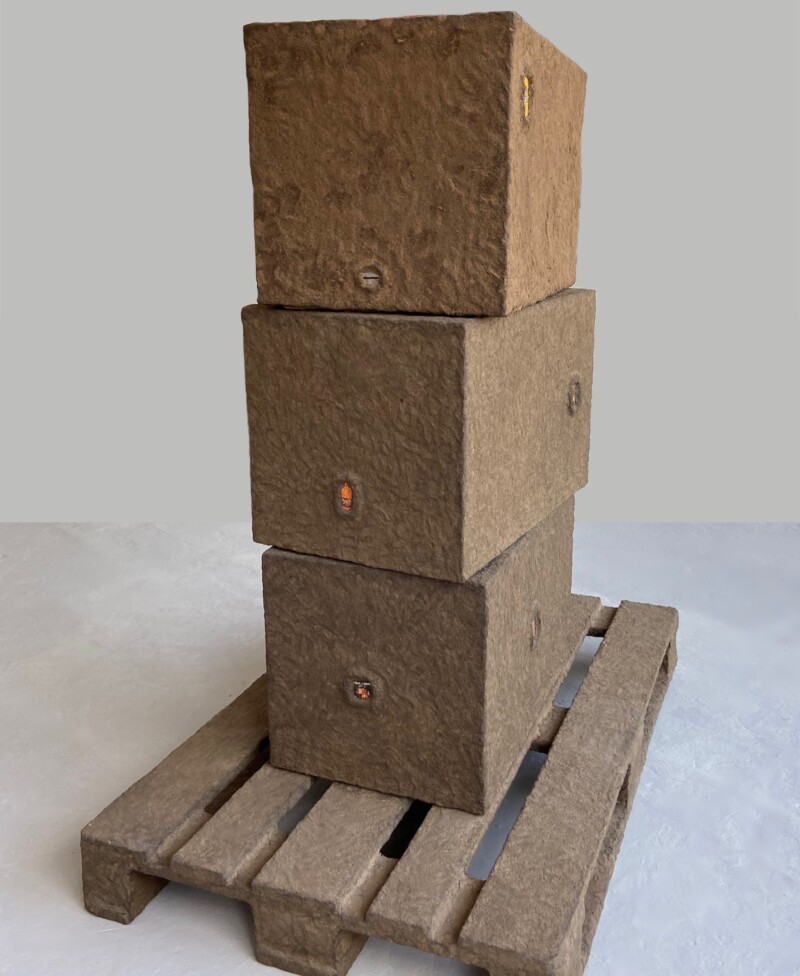
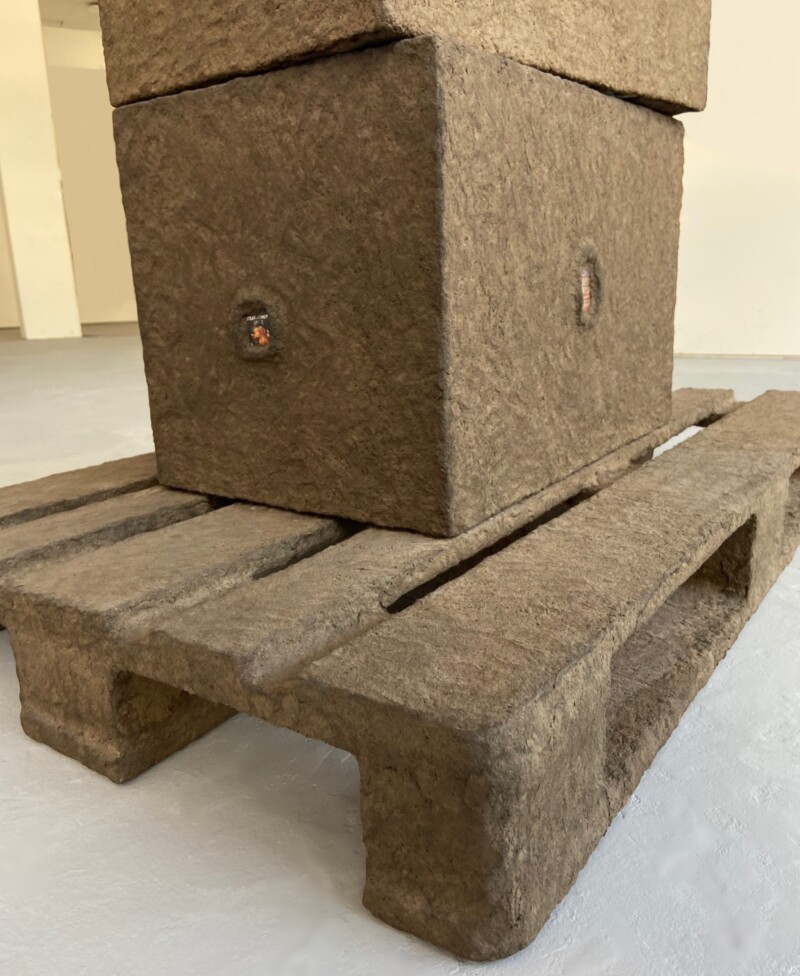
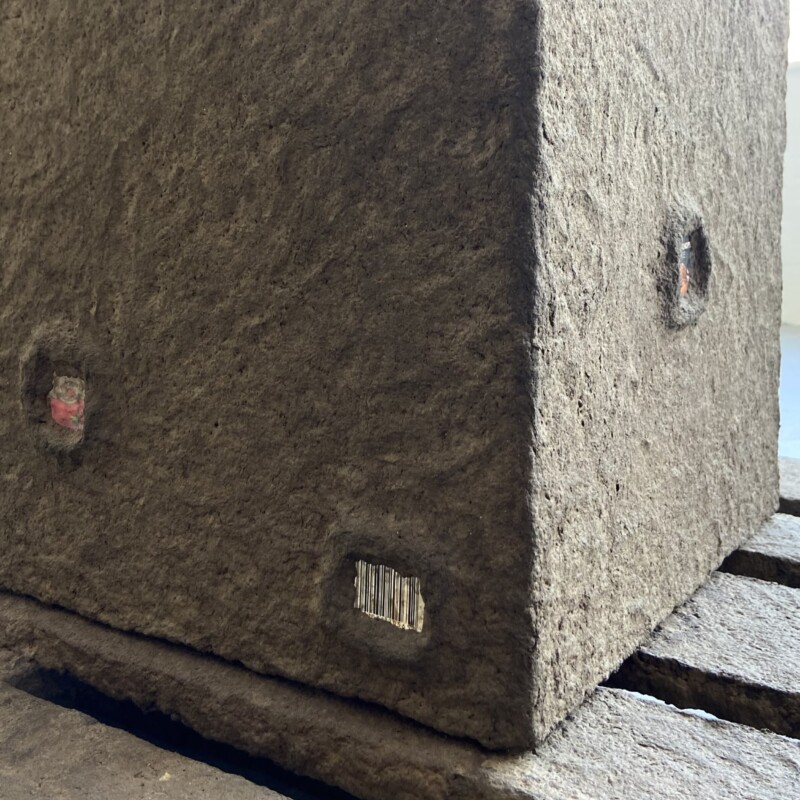
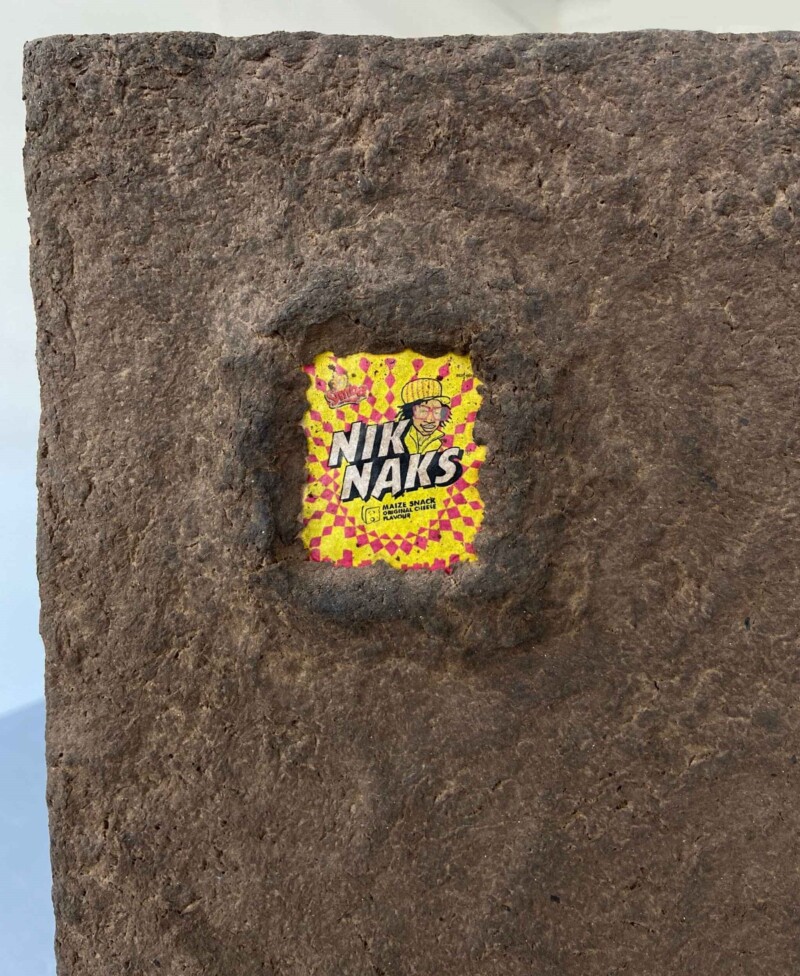
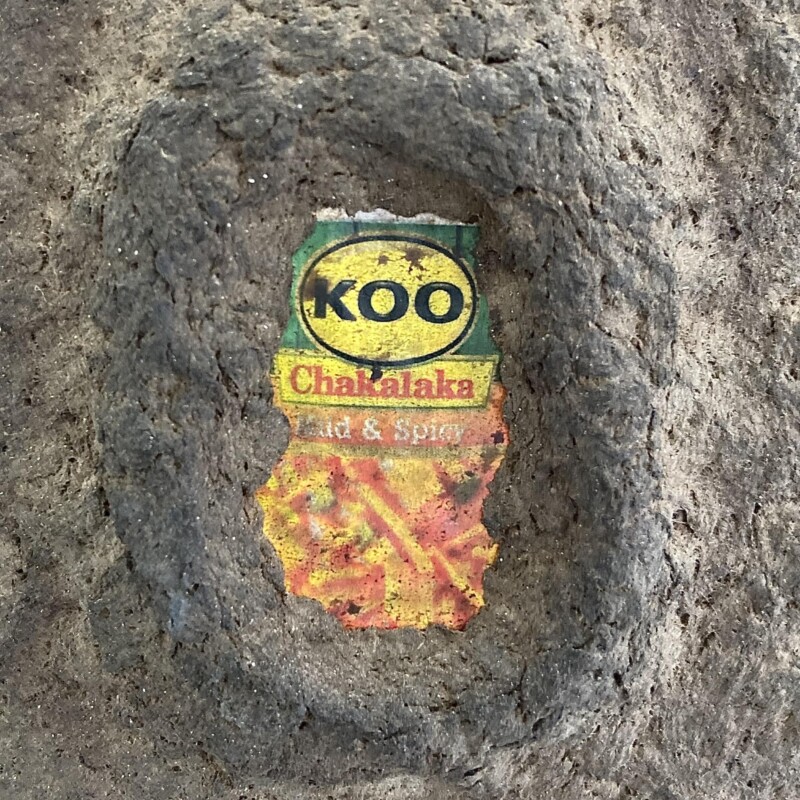
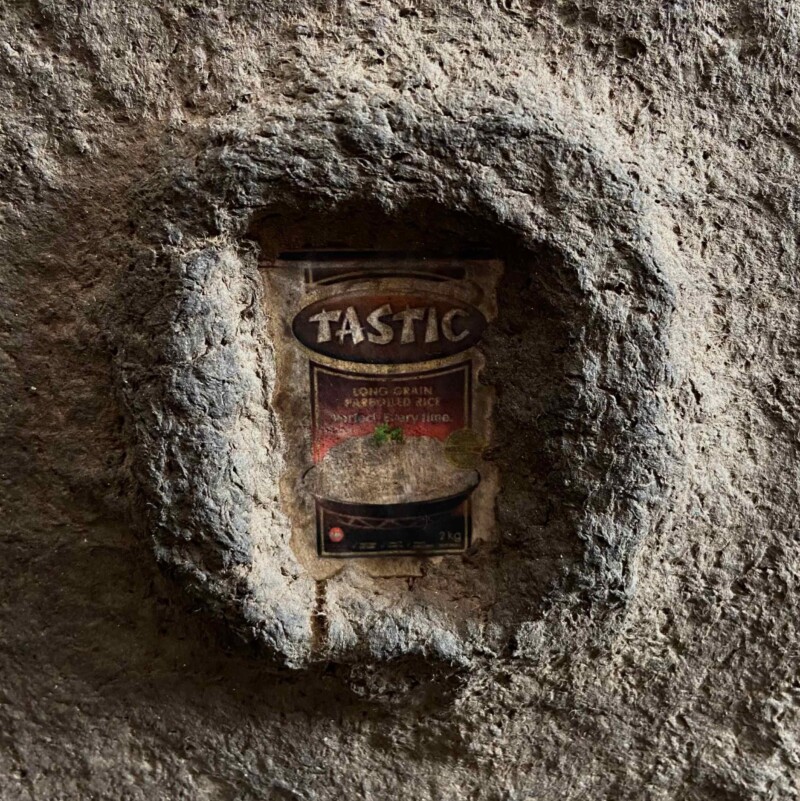
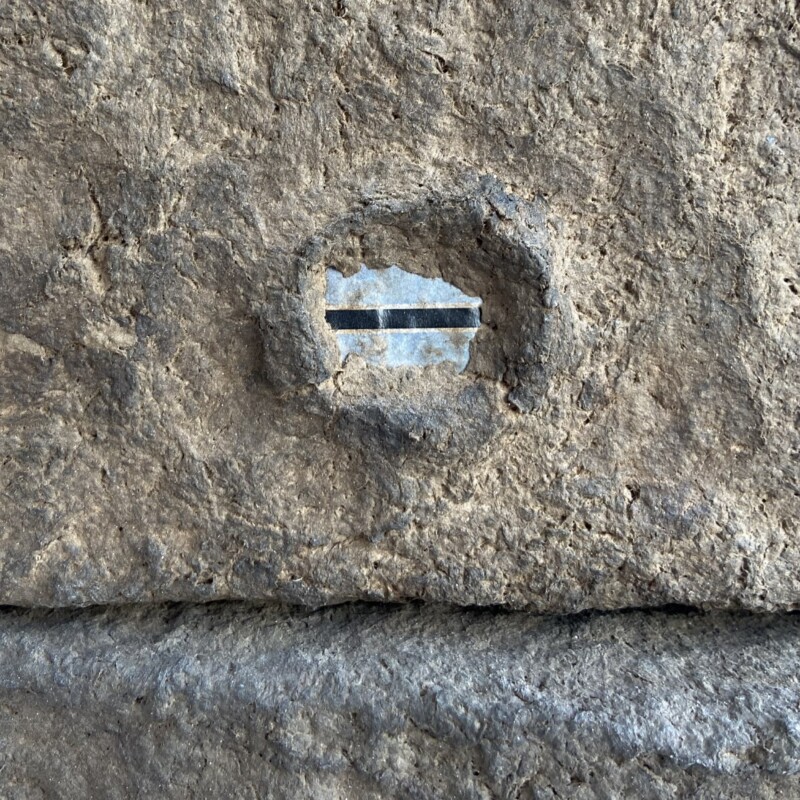
Contact Melanie Woodward
- melaniewoodwardstudio@gmail.com
- @mtwou